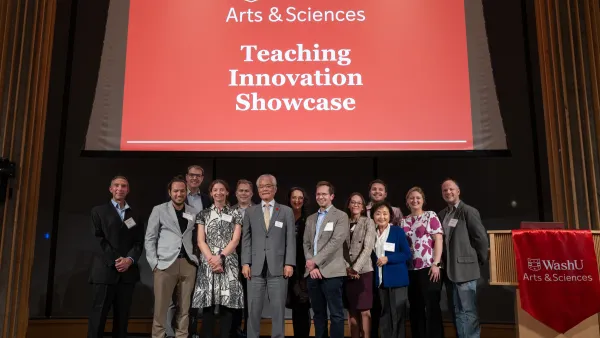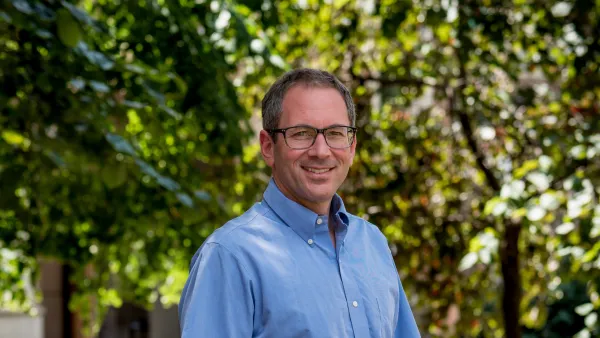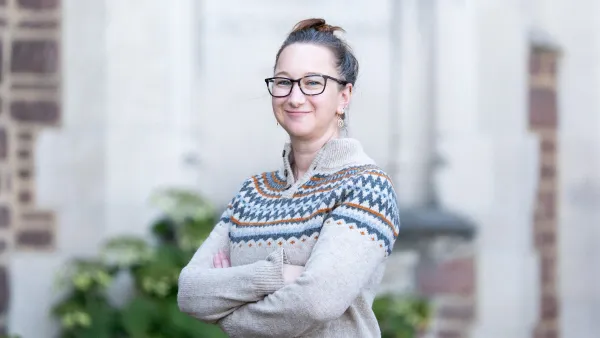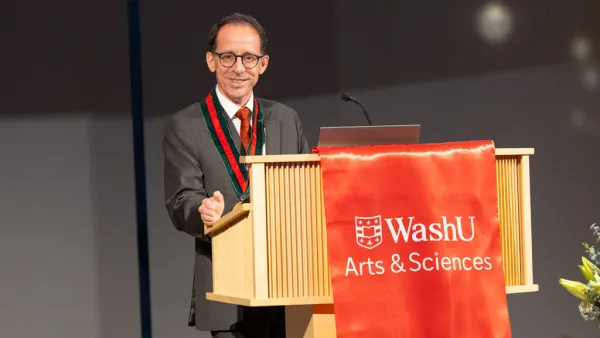Janet Goins joins the Department of Biology in a new hybrid position. She will be teaching and mentoring while also coordinating undergraduate research experiences. In her last role, she served as associate director of Undergraduate Research Center-Sciences at the University of California, Los Angeles.
Like many of the students Goins has mentored over the past 10 years of her career, she started out pre-med in college. But an undergraduate research experience made an impression on her.
“I couldn’t believe people got paid to do this. My advisor offered to take me on as a graduate student if I wanted to go to graduate school. I was sold,” says Goins.
Her graduate studies on marine algae and the viruses that infect them took her on ocean research cruises for about two months at a time. She has been in the North Atlantic and Western Pacific. She crossed the equator, the international date line, the arctic circle, all while earning her PhD in microbiology.

But it was during her postdoctoral research experiences at the Nebraska Center for Virology and later at University of California, Irvine that she developed her love for teaching. In Nebraska she co-taught a course called Biological Invaders.
“Students came with various science backgrounds. It was a fun teaching challenge to capture everyone’s attention without boring them or going over their heads,” says Goins.
While at the University of California, Irvine, Goins was selected for a science teaching fellowship by the American Society for Microbiology and learned how to better engage with undergraduate researchers. Her teaching experiences ultimately got her involved in a $5 million grant that UC Irvine received, focused on multidisciplinary water sustainability research and education. She was asked to revise and expand the project’s educational programs, working as the director of educational outreach. She led the rewrite of a six-week program that took undergraduates out into the field in southern California and in southeast Australia to study wetlands and contribute to ongoing research.
She also involved graduate students in mentoring and doing outreach with the community, including at a local high school and a children's water education festival in southern California. Goins expressed pride in her students who turned third, fourth and fifth graders into water engineers making biofilters – and not just because they got acknowledged by the Office of Science, Technology and Policy under the Obama administration.
As she settles into her newly created position, Goins will be a resource to bench mentors wanting to become better mentors. She hopes to be able to offer a certification program for mentors looking to improve skills. She aims to involve older undergraduate students in mentoring through an ambassador’s program, too.
Goins will also be heavily involved in spreading awareness amongst the undergraduate students in the biology department that they can do research. With her experience working with students on professional development, Goins hopes to develop workshops on this topic to help students navigate college and life after college. She sees herself as the liaison between undergraduate students in the biology department and the Office of Undergraduate Research.
“It can be challenging when a center core serves the whole campus. It can be rather siloed away from all the different departments. My hope is to disseminate the resources available to our students,” explains Goins.

Hidden curriculum
“I love teaching and being in the classroom, but I really love that more abstract nature of teaching professional development for students. There are a lot of expectations for students to know things,” explains Goins.
Goins is talking about the hidden curriculum or the things we learn along the way that we are not always aware of when and how we learned them.
“It is unfair, especially for students from underserved populations, to expect them to know what office hours are for, for example. Or that they are the ones who pursue faculty to get a research position and that they have to be tenacious about it. Writing a scientific article is so different than any sort of writing they have been trained to do. Yet, we expect students to just know how to,” says Goins, who ran six programs at the Undergraduate Research Center-Sciences at UCLA, first as assistant director and more recently as associate director, to make the hidden curriculum more visible and accessible to all students.
Goins’ passion for helping students succeed stems, in part, from her own personal experiences of feeling overlooked by the adults who were in charge of taking care of her.
“I had a difficult childhood. I understand the frustration of being overlooked. I don't want my students to experience that feeling. I try very hard to look out for all students and especially those who have been historically overlooked,” says Goins, who recalls her own struggles with navigating college on her own.
“I had a difficult childhood. I understand the frustration of being overlooked. I don't want my students to experience that feeling. I try very hard to look out for all students and especially those who have been historically overlooked,” says Goins, who recalls her own struggles with navigating college on her own.
Goins, who is a believer in education as a tool for getting out of a bad situation, is committed to working with students to help them succeed. Raised in East Tennessee by adoptive parents who applied themselves very hard in education, she realized that education was her ticket to getting out of a bad situation with her biological family and living a better life.

“That is what I wanted for myself. And what I want for my students. Their difficult situation may be different from mine, but we share frustrations. I want them to know that we can change how they feel,” explains Goins, who is in the process of filling her office with the plants she loves as an offering of a welcoming place for students to come and share their challenges.
“There is something meditative about taking care of plants,” says Goins, who drove an electric car full of plants across the country on her move to St. Louis, “You have to be willing to just step back and let the plant be itself. What is good for one plant is not the same for another plant.”
She applies this same level of care to her students.
“What works for one student may not work for other student needs,” Goins explains.
Once a CAMPer, always a CAMPer
It is easy to see how Goins was chosen for a role that serves students. Her warm nature exudes excitement for the future relationships she hopes to develop with WashU students. She has repeatedly shown her commitment to helping students succeed, even beyond their time as undergraduates.
“I ran a CAMP program which stands for “California Alliance for Minority Participation”. I would tell those students, and feel the same way about all my students, that my door is always open and they should never hesitate to reach out to me,” says Goins.
“Once a CAMPer, always a CAMPer,” says Goins.
Her commitment to her students does not end on graduation day. Goins keeps in touch with them, advocating for them at all stages of their career.
“I also want to know where they end up because there is always another student who shares their struggle. Their story can now be an example of how it is possible to persevere,” says Goins.




